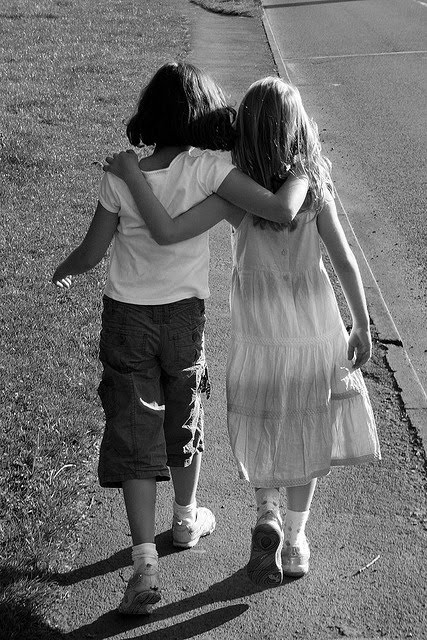Friendship is one of the greatest blessings we can receive and give. God’s intention of friendship is love. I believe God gives us friends for many reasons. One is to help us move forward when we are too frozen in fear to accomplish on our own.
In college I read a quote by Anaïs Nin, “Each friend represents a world in us, a world possibly not born until they arrive, and it is only by meeting that a new world is born.” Nin’s quote struck me deeply, possibly because it was the first time in my life where I had the sole responsibility to reach out and intentionally make friends. Unexpectedly, college brought a wide variety of individuals from many cultures together in one place. There was so much to experience amidst so much trepidation and uncertainty. I found myself completely stimulated by brief conversations whereby another perspective, emphasis, or solution was offered than I alone would have perceived. My world felt expanded, energetic, and enriched. Friendship gifts us with such intangibles and more.
When we are children, we bond over similarities such as common lunchboxes, athletic teams and favorite music or television shows. As we mature into puberty and adolescence our friendships become more important to us than ever before. In adolescence, we are more likely to value the acceptance and advice of a friend above that of our own parents. As we become independent and marry, friendship can take a backseat to raising children, working, and caring for aging family members. As we move into empty-nesters and on towards retirement and later life, friends become more important again. It is then that friends keep our memories, remind us of what we did right and good, and give us purpose when our physical bodies begin slowing down. Sociological and psychological studies explain that we need friends differently through each stage of life. Additionally, studies demonstrate that people with good friendships experience better physical and mental health. Indeed, good friendship is highly correlated with healthy psychological well-being, healing, and resilience.
For generations, researchers have tried to identify the common threads of good friendship. I have selected three foundational threads to focus on: trust, support, and belief. Trust is key to any good relationship. Trust allows us to share and confess openly, honestly, and authentically without fear of losing camaraderie. Trust enables us to work through simple and complex issues. Support gives us the understanding that even when we fall and crawl, that we have another to yank us back on track. Support does not entail condoning poor behavior, rather backing the person to right the wrong or encourage them toward a particular goal. Belief is knowing that the other means well and has the value, ability, and desire to live a purposeful and meaningful life. These common threads constitute the hallmark of good character that can cultivate good friendship.
“A friend loveth at all times.” Proverbs 17:17
Think for a moment how trust, support and belief are woven (or not) into the fabric of your most important relationships. What can you do to strengthen these threads and mend the broken bonds of older friendships? Doing so is a gift to your friends and yourself. How can you weave these attributes into newer, still-developing relationships? Big topics deserve more discussion. Next week we will discuss how to create our friendship circles and become better weavers and connectors.
Till next week!
Copyright © 2020 Yvette Seltz, used by permission. Visit https://cccc-usa.com/new-index to learn more.

Dr. Marie Yvette Hernández-Seltz is the director of Candescent Counseling, Consulting & Coaching. She holds a PhD in Clinical Psychology and an MS in Industrial/Organizational Psychology. She has spent the past 15 years studying self-esteem, self-confidence, responsibility, and the effects of environment and culture on the individual.

